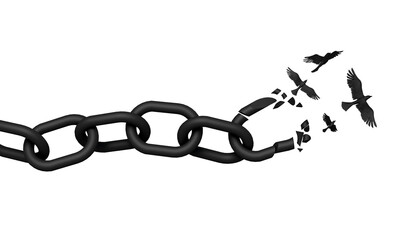Stalking is defined as repeated and persistent unwanted communication or approaches that produce fear in the victim. Stalking is a behavior, not a mental disorder. It is important to understand that stalkers struggle with mental health or personality disorders that motivate this problematic behavior.
Stalking is a behavior, not a disorder
Stalking is a behavior and not a mental disorder. Many stalkers, due to mental health problems or personality disorders, are unable and lack the ability to socialize with others. For the most part, individuals who would be labeled a stalker often suffer from a lack of social skills and find challenging in communicating with other people. In reality, most stalkers do not suffer from hallucinations or delusions, although many do suffer from other forms of mental illness including depression, substance abuse, and personality disorders.
Types of Stalkers
Men are stalkers, but women can also become stalkers as well. About 80% of women are victims of stalkers. Some common characteristics of stalkers are discussed below.
Obsessed: This type of individual constantly thinks about the person they idolize. Stalking is about obsession. It is clear that when people fixate on and stalk another individual they are psychologically unstable. These stalkers are relatively common and tend to be casual acquaintances or isolated ‘loners’.
Rejected: These perpetrators have been in a previous relationship usually abusing and controlling in nature. Many stalkers have a history of challenging relationships and find it difficult to communicate with others. They have a feeling of rejection within them and often keep an eye on their partners.
Incompetent: These stalkers would-be suitors seeking a partner. Given their ignorance or indifference to the usual courting rituals, they use methods that are, at best, counterproductive and, at worst, terrifying. Stalking provides an approximation of finding a partner.
Intelligent: Usually stalkers are intelligent and carefully plan their stalking behavior. Someone who falls into this category could meet the criteria for sociopathy. Sociopaths are adept at planning their “attack” and controlling others with charm or acting with glib.
Motivated: Most stalkers believe that their object of desire is the only person they could ever love and tend to be motivated to pursue based on this type of thinking.
What are the signs of stalking?
Stalking behavior can include the following:
• Knowing the person’s schedule, tracking their whereabouts, or physically following them
• Repeatedly sending texts, calls, or emails
• Unexpectedly showing up at the person’s home, workplace, or school
• Delivering unwanted gifts
• Stealing the person’s possessions
• Threatening the person or their friends and family
• Other behaviors that lead to feeling unsafe, harassed or monitored
What is cyberstalking?
Cyberstalking refers to any form of stalking that relies on technology. It is a consistent pattern of behavior and the content is typically threatening, disturbing, or dangerous. Examples of cyberstalking include the following:
• Repeatedly sending unwanted messages via email or a social media platform
• Tracking someone via GPS without their consent
• Monitoring online activity without consent
• Releasing sensitive or personal information about a person online
• Impersonating the individual in chatrooms or online platforms
• Installing a camera on the person’s computer to view or record them without consent
Why do people become stalkers?
Perpetrators are often motivated to control, humiliate, frighten, manipulate, embarrass, or take revenge on the victim. Romantic motivations are also at play, such as wooing a new mate or scaring away other potential suitors.
Mental health conditions often appear in those who become stalkers—research suggests that half of one sample of stalkers had a disorder such as antisocial personality disorder, narcissistic personality disorder, or borderline personality disorder. Borderline is particularly prominent in women stalkers.
Why do people stalk celebrities?
A variety of factors can motivate celebrity stalkers. They may seek attention from the celebrity and become resentful when they don’t receive it. They may attempt to genuinely court the target, be a predator trying to gather information, and eventually assault the celebrity or have a delusion that they truly formed a relationship with the person.
The rise of social media and influencer culture has made it easier for people to feel attached to celebrities. Famous figures can regularly communicate directly—and intimately, seemingly—to their followers via YouTube or Instagram Live. They can respond to comments or messages. This can create the illusion of having a close, real relationship with celebrities when the reality is that the relationship is completely one-sided.
Can borderline personality disorder lead to stalking?
People with a borderline personality disorder often feel intense anxiety about being separated or abandoned from the people they care about. They may prefer not to be alone and come across as “needy” or demanding in the time, communication, and attention they seek from their spouse, family, or friends. They might go to extreme lengths, such as stalking a person by tracking their phone or following them. Indeed, research suggests that 45 percent of people who engage in stalking behavior may have a borderline personality disorder.
Can women be stalkers?
Stalking is often perceived as a crime committed only against women. Although three times more women than men are victims of stalking, women are also perpetrators of such behavior. About half of male victims of stalking report having female stalkers.
“Even though both sexes grapple with the urge to pursue, we are reluctant to take female stalking seriously,” writes Lisa Philips, the author of Unrequited: Women and Romantic Obsession. “Research shows we’d rather give female stalkers a ‘gender pass,’ perceiving what they do as less serious than if they were male.”
References
- https://doctor.ndtv.com/emotions/is-stalking-a-mental-illness-1738062
- https://www.goodtherapy.org/blog/psychpedia/stalking
- https://www.vice.com/en/article/3k94wj/psychology-of-stalking-treatment
- Paul E. Mullen, Rachel Mackenzie, James R. P. Ogloff, Michele Pathé, Troy McEwan and Rosemary Purcell
Journal of the American Academy of Psychiatry and the Law Online December 2006, 34 (4) 439-450;











Very impressive.
Thank you